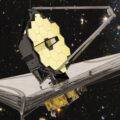If you’re ready to leave Earth behind and hit the cosmic highway, a new travel calculator designed to help you plot your next distant planetary journey may be able to help.
From sorting out how long your journey will be to how many books and movies you’ll need to pack, the Exoplanet Travel Planner Calculator is a hilarious tool for your next big space adventure.
Interstellar travel remains one of the most ambitious goals of human space exploration. Unlike trips within our solar system, reaching an exoplanet requires crossing vast interstellar distances, often measured in light-years. Current propulsion technologies make these distances daunting, necessitating significant advancements in space travel technology. And while this handy little travel calculator won’t get you very far, it’ll put a smile on your face.
Designed by Steven Wooding and Álvaro Díez, and the company Omni Calculator, the Exoplanet Travel Planner is a unique way for astronomy enthusiasts, researchers, and the just plain curious to hypothesize viable journeys toward exoplanets, which are celestial bodies that exist outside our solar system.
Essentially, you plug in your age and select one of seven exoplanets and the calculator crunches these parameters and outputs theoretical details about their journey. Now, a big caveat here is that our theoretical ride can travel near the speed of light.
For example, a trip to the nearest exoplanet, LHS 475 b, would take over seven years at near light speeds, requiring substantial food and water. The calculator also accounts for in-flight entertainment needs and illustrates the discrepancy between travel time and the passage of time on Earth. This tool not only highlights the logistical challenges of such voyages but also brings a touch of reality to the concept of space exploration.
So, to unpack our journey to LHS 475 b, we would need a little over 6,500 kilograms of food and about 603,000 liters of water. According to the calculator, we are talking about a 20-foot shipping container of food and about 2,000 bathtubs of water. For fun, it also lets you know that if you recycle your water and are fine with drinking your purified shower water and urine, we can cut down to about 12,000 liters of water for the voyage.
It also reminds you to pack the stuff to keep your mind occupied. So, it recommends bringing about 320 books, over 2000 movies, and about 218 seasons of your top TV shows.
“Your flight time to the nearest (exoplanet) is seven years. But because the spaceship is going so fast, your time slows down while you’re going that fast. So the time passing back on Earth, on that example, was 43 years,” Wooding, one of the calculator’s creators, told CTV News in an interview.. “So we also included how many generations of your family will be born back on Earth in the time it’s taking you to travel.”
This phenomenon is known as “time dilation”, and it was predicted by Einstein’s theory of relativity. At these high velocities, time for the traveler slows down relative to those remaining on Earth. This effect would have profound implications for astronauts, potentially seeing them return to an Earth that has aged decades, or even centuries, while they have aged only a few years.
So in the case of our example, by the time we get to our destination, everyone on Earth has aged 42 years.
While the Exoplanet Travel Planner may currently be rooted in the realm of theoretical application, it has important implications around the way we approach space travel and our understanding of what lies beyond our solar system. Moreover, it prompts users to contemplate the real-life ramifications of a foray into long-term space travel, harboring a new level of respect for astronauts who undergo such journeys.
Even more, the journey information from the Omni Calculator could serve as inspiration and a basis for science fiction writers, game developers, and filmmakers. With accurate interstellar travel data at their disposal, they can create more in-depth, believable narratives that engage audiences on a new level.
“Our goal with the Exoplanet Travel Planner is not merely to satiate curiosity but to inspire a deeper engagement with and understanding of space travel,” Wooding explained. “It’s a simple, user-friendly way to dive into complex physics, and it’s a tool that anyone, regardless of their scientific background, can use and learn from.”
MJ Banias is a journalist who covers security and technology. He is the host of The Debrief Weekly Report. You can email MJ at mj@thedebrief.org or follow him on Twitter @mjbanias.

